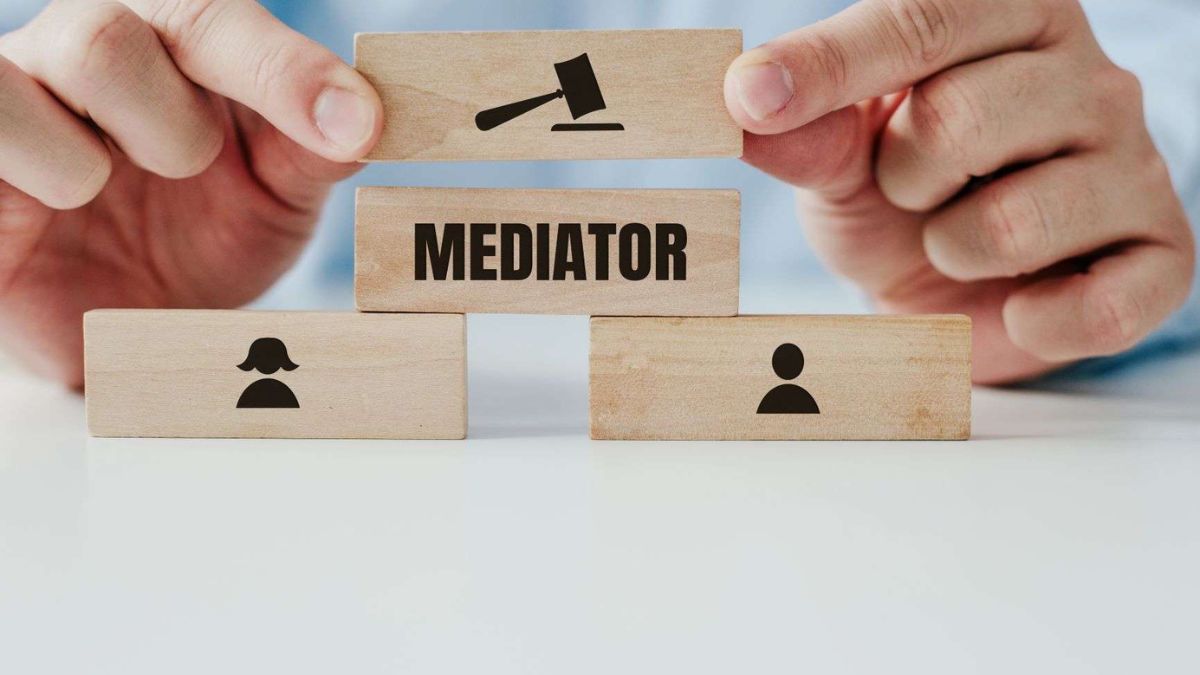HEALTH
Stress and Ovarian Cysts: Can Anxiety Make Your Symptoms Worse?

When dealing with ovarian cysts, the physical symptoms—like pelvic pain, bloating, and irregular periods—can be overwhelming enough on their own. However, for many women, the emotional and psychological aspects of living with ovarian cysts are just as significant. One factor that often exacerbates these symptoms is stress.
But how exactly does stress affect ovarian cysts, and can anxiety make your symptoms worse? In this blog, we’ll explore the intricate relationship between stress and ovarian cysts, how stress might impact the severity of your ovarian cyst symptoms, and what you can do to manage both the physical and emotional aspects of dealing with ovarian cysts.
What Are Ovarian Cysts?
Before diving into how stress and anxiety can affect ovarian cysts, it’s important to understand what they are. Ovarian cysts are fluid-filled sacs that develop on or inside the ovaries. They are relatively common, especially in women of reproductive age, and most ovarian cysts are benign (non-cancerous). Many women experience no symptoms at all, while others may have pain or discomfort.
There are several types of ovarian cysts, with the most common being functional cysts, which occur during the menstrual cycle. These cysts usually resolve on their own without treatment. However, some women may experience more complex cysts that can cause symptoms like:
- Pelvic or abdominal pain
- Bloating
- Irregular or heavy periods
- Pain during sex
- Nausea or vomiting
While most cysts are harmless and go away on their own, some can grow, cause complications, or affect fertility. For women experiencing persistent symptoms, stress can be both a contributing factor and a result of dealing with a chronic condition like ovarian cysts.
The Link Between Stress and Ovarian Cysts
Stress is an inevitable part of life, but when it becomes chronic, it can have a profound impact on your physical health, including your reproductive system. Research shows that stress affects the body in many ways, from disrupting hormone levels to causing inflammation, both of which can influence the formation or worsening of ovarian cysts.
Here’s how stress might contribute to or worsen ovarian cyst symptoms:
Hormonal Imbalance
Stress triggers the release of the “stress hormone” cortisol. Cortisol is part of the body’s natural fight-or-flight response, which is essential for managing acute stress. However, prolonged stress can lead to consistently high cortisol levels, which may disrupt the delicate balance of other hormones involved in the menstrual cycle, such as estrogen and progesterone.
An imbalance in these hormones can have a direct effect on ovarian function. For example, high cortisol levels may prevent the proper release of eggs from the ovaries, a process known as ovulation. Without proper ovulation, the ovarian follicle can become a cyst. Additionally, hormonal imbalances can cause irregular periods, which may make cysts more likely to form or grow.
Increased Inflammation
Chronic stress also triggers the body’s inflammatory response. Inflammation can interfere with normal bodily functions, including those of the reproductive system. Inflammation may cause the ovaries to become more susceptible to cyst formation or exacerbate the symptoms of existing cysts, leading to increased pain, bloating, or discomfort.
In some cases, inflammation may lead to more serious complications, such as the rupture of a cyst, which can result in severe pain and, in rare cases, infection.
Muscle Tension and Pain Perception
When stressed or anxious, the body tends to tense up, particularly around the shoulders, neck, and abdominal area. This muscle tension can increase pelvic discomfort in women with ovarian cysts. The sensation of pain or pressure caused by a cyst may feel more intense when your muscles are tight and stressed.
In addition, stress can alter your perception of pain, making you more sensitive to discomfort. This means that the pain from a small ovarian cyst might feel much worse when you’re under stress or anxious. This can create a cycle where anxiety about the cyst causes more stress, which in turn makes the pain feel more unbearable.
Gut and Digestive Issues
Stress can also have a significant impact on the digestive system. Anxiety and stress can lead to issues like bloating, constipation, and stomach cramps—symptoms that overlap with the symptoms of ovarian cysts. When you’re already dealing with abdominal discomfort due to a cyst, additional digestive problems caused by stress can make everything feel worse.
Furthermore, chronic stress can lead to conditions like irritable bowel syndrome (IBS), which may increase bloating and digestive distress, further exacerbating the discomfort associated with ovarian cysts.
Reduced Immune Function
Stress has a detrimental effect on the immune system. Prolonged stress can weaken immune function, making the body less able to deal with infections or inflammation. This can affect your ovaries, increasing the likelihood of complications such as cyst rupture or infection. Additionally, a weakened immune system may delay the healing of cysts or prolong the symptoms associated with them.
How Anxiety Can Impact Ovarian Cyst Symptoms
Anxiety, which often accompanies stress, can also play a major role in exacerbating ovarian cyst symptoms. Anxiety causes the body to stay in a heightened state of alert, activating the fight-or-flight response even when there is no immediate danger. This prolonged state of arousal can lead to physical changes in the body that make ovarian cyst symptoms worse.
Some specific ways anxiety can affect ovarian cysts include:
- Hypervigilance about symptoms: When you’re anxious, you may become hyper-aware of any sensations in your body. This can cause you to focus excessively on your ovarian cyst symptoms, making them seem worse than they are. This heightened awareness can also lead to unnecessary worry and stress.
- Sleep disturbances: Anxiety can interfere with your ability to sleep, leading to fatigue and an overall decrease in your ability to cope with physical symptoms. Poor sleep can also increase your sensitivity to pain, making the discomfort from ovarian cysts more difficult to manage.
- Behavioral effects: Anxiety can lead to unhealthy coping mechanisms, such as overeating or drinking alcohol, which can worsen inflammation and disrupt hormone balance, potentially making ovarian cysts more problematic.
Managing Stress and Anxiety to Relieve Ovarian Cyst Symptoms
Given the connection between stress, anxiety, and ovarian cysts, managing your emotional well-being is crucial for alleviating symptoms. Here are several strategies you can incorporate into your daily routine to help reduce stress and anxiety:
Practice Mindfulness and Meditation
Mindfulness practices, such as meditation and deep breathing exercises, can help calm your nervous system, reduce cortisol levels, and ease physical tension. Even just 10–15 minutes of mindfulness a day can help regulate your stress levels and improve your overall sense of well-being.
Exercise Regularly
Exercise is a powerful tool for stress reduction. Physical activity helps release endorphins, which are natural mood boosters, and can also help improve sleep quality and reduce anxiety. Aim for activities you enjoy, such as walking, swimming, or yoga, which can also alleviate muscle tension and promote relaxation.
Manage Your Diet
A balanced diet can play a role in reducing stress and supporting your reproductive health. Foods rich in antioxidants, omega-3 fatty acids, and fiber can help reduce inflammation and support hormonal balance. Limiting caffeine and alcohol intake can also help stabilize your mood and energy levels.
Therapy and Counseling
If anxiety is affecting your daily life, talking to a therapist can be beneficial. Cognitive-behavioral therapy (CBT) is particularly effective for anxiety and stress management. A mental health professional can help you develop coping strategies and reduce anxiety related to your cyst symptoms.
Stay Connected with Support Networks
Talking to friends, family, or others who are going through similar experiences can provide emotional relief. Support groups, whether in-person or online, can be a great way to share your concerns, receive advice, and feel understood.
Seek Medical Advice
If you’re experiencing significant pain or discomfort from ovarian cysts, it’s essential to speak with a healthcare provider. They can provide treatment options, including medication for pain management or hormonal regulation. In some cases, they may recommend surgery to remove the cyst, especially if it is causing severe symptoms.
Conclusion
Stress and anxiety can significantly impact the severity of ovarian cyst symptoms, from hormonal imbalances to increased pain and digestive issues. While it may not be possible to completely eliminate stress from your life, managing it effectively can help reduce the physical and emotional burden of dealing with ovarian cysts. By incorporating stress-reduction techniques like exercise, mindfulness, and proper medical care, you can help improve your overall health and minimize the impact of ovarian cysts on your life.
If you’re struggling with symptoms of ovarian cysts or experiencing heightened anxiety, don’t hesitate to consult with a healthcare provider. Together, you can develop a comprehensive plan to manage both your physical and emotional well-being.
HEALTH
Gel Ooru: A Journey into Heritage and Meaning

‘Every culture has its own set of unique words that are tied to history, land, and lifestyle. One such word that holds charm and curiosity is gel ooru. It’s a term that echoes cultural roots, connects people to their heritage, and tells a story far beyond just a literal meaning. When we explore gel ooru, we uncover not only its etymology but also the emotions and values it represents. Whether you’ve heard it in a song, a traditional saying, or from someone reminiscing about their past, gel ooru invites a deeper dive into its significance.
What Does Gel Ooru Mean?
Gel ooru can be interpreted as a term referring to one’s native place or village. In some South Asian languages, particularly in Kannada or other Dravidian roots, the phrase is often used to describe one’s hometown or ancestral land. It’s not just a place—it’s an identity. The very sound of gel ooru brings to mind images of fields, childhood memories, old temples, and simpler times. It speaks to where someone comes from, both geographically and emotionally.
The Emotional Weight Behind Gel Ooru
For many, gel ooru isn’t just about geography. It’s where their grandparents lived, where childhood summers were spent, or where family traditions were passed down. Even for those who’ve left their gel ooru for education or work in cities, there’s always a tug at the heart when they speak of it. The phrase holds a blend of nostalgia and pride. It’s common to hear someone say they are going “back to gel ooru,” especially during festivals or vacations. That phrase alone can light up conversations, bringing warmth and fond memories.
How Gel Ooru Shapes Identity
In rural or even semi-urban societies, gel ooru is tied directly to a person’s identity. People often introduce themselves not only with their name but also by mentioning their gel ooru. It gives a sense of belonging and roots. For instance, in traditional communities, knowledge of someone’s gel ooru helps understand their background, dialect, customs, and even cuisine preferences. It is part of the social fabric that binds people together with a shared understanding of their origins.
Language and the Cultural Ties to Gel Ooru
The use of the term gel ooru across generations shows how language carries culture. Whether it’s spoken during storytelling, sung in folk songs, or written in local literature, it is a reminder of the deep respect for one’s birthplace. Language preserves emotions, and gel ooru is one such emotional keyword. It doesn’t need translation because its meaning is felt more than explained. Even the way the word is pronounced often carries a lilt of affection and pride.
The Connection Between Gel Ooru and Traditions
Every gel oor’u comes with its own traditions—festivals celebrated uniquely, local deities worshipped in age-old temples, or specific foods cooked during harvest seasons. These traditions are often exclusive to that specific place and make it unique. A person might fondly recall the festival celebrations or community rituals that made their gel oor’u special. These traditions are more than routines; they’re expressions of culture, and gel oor’u becomes a vessel that carries them across time.
Why People Return to Their Gel Ooru
No matter how far someone travels, there’s often an innate desire to return to their gel oor’u. This is especially visible during festival seasons when cities empty out as people travel back to their native villages. It’s a time for reconnecting with family, tending to ancestral homes, participating in age-old rituals, and simply soaking in the slower rhythm of rural life. The peace and simplicity found in gel oor’u are hard to replicate elsewhere. It offers a break from modern hustle and serves as a reminder of one’s simpler roots.
Changing Faces of Gel Ooru in the Modern Age
With the spread of urbanization, many gel oor’us have evolved. Roads are paved, new buildings are constructed, and lifestyles are slowly shifting. However, while the outer appearance may change, the soul of the place often remains intact. Elders still recount old stories, traditional customs are preserved, and nature continues to be a vital part of daily life. Interestingly, many young professionals are now returning to their gel oor’u, driven by the need for peace, affordability, and connection with the land. This reverse migration gives a new dimension to what gel oor’u represents in today’s world.
The Role of Gel Ooru in Literature and Cinema
In many regional stories, novels, and films, gel oor’u serves as a backdrop that grounds the narrative. Characters often travel from cities to their gel oor’u and go through transformative experiences. The journey back becomes symbolic—a return to values, authenticity, and inner peace. Filmmakers and authors use gel oor’u to highlight contrasts between urban and rural life. These stories often carry deep moral and emotional lessons, where the village or native place becomes almost a character itself.
Preserving the Essence of Gel Ooru
As time goes on, there’s an increasing need to preserve the soul of gel oor’u. That doesn’t mean resisting progress but embracing it while holding on to traditions. Preserving old buildings, celebrating festivals, and teaching children about their roots are all ways to keep the gel oor’u spirit alive. Oral storytelling, family albums, traditional crafts, and even social media now play roles in keeping memories and practices from gel oor’u vibrant and relevant.
Gel Ooru and Family Legacies
Often, gel oor’u houses ancestral homes, land that has been passed down generations, or even family temples. These physical spaces serve as living reminders of lineage and legacy. They are the places where family trees are discussed over evening tea and where elders narrate their own childhood stories. These legacies give people a sense of continuity. Visiting one’s gel oor’u becomes more than just a vacation; it’s a reaffirmation of who you are and where you come from.
The Simplicity and Strength of Gel Ooru Life
Life in gel oor’u is often slower, simpler, and closer to nature. People wake up with the sun, work with the soil, and share strong community bonds. There is beauty in this simplicity—a rhythm that connects people to what really matters: food, family, and faith. This lifestyle, while often seen as “basic” by outsiders, is rich in wisdom and sustainability. It teaches resourcefulness, gratitude, and humility. Many people, after experiencing city fatigue, find solace in this way of life.
How Gel Ooru Sparks Creativity
It’s no surprise that many artists, musicians, and writers draw inspiration from their gel oor’u. Whether it’s the landscape, the people, or the life lessons learned there, gel oor’u becomes a creative wellspring. Songs about childhood, paintings of village scenes, and stories filled with earthy metaphors all celebrate the gel oo’ru experience. Creativity blooms in these settings because the connection to self is so strong, unclouded by modern distractions.
Looking to the Future: Gel Ooru and Digital Age
In the digital age, even gel oor’u is finding its place online. From YouTube channels dedicated to rural cooking to Instagram pages showcasing village life, gel oor’u is gaining a global audience. Youngsters are sharing drone shots of their ancestral homes, writing blogs about festivals, and even starting eco-tourism ventures. The digital world is helping preserve and amplify the charm of gel oor’u like never before. It’s proof that tradition and technology don’t have to be enemies.
Final Thoughts on the Enduring Power of Gel Ooru
Gel ooru is more than a location—it’s a feeling, a memory, and a guidepost. It stands for roots, authenticity, and a timeless rhythm of life. No matter how much the world changes, the idea of gel oor;u continues to offer comfort, identity, and inspiration. It reminds us of our roots and urges us to stay grounded. Whether you visit your gel oor’u once a year or just carry it in your heart, its influence never really fades.
HEALTH
Mediators in OKC Share 6 of the Best Mediation Tactics for Difficult Child Custody Mediations

Child custody battles are often an emotional and stressful legal situation for anyone. In Ok, people inform expert mediators to make fair agreements without any fight, because when emotions run high, one important thing is the right strategy. Top mediators in OKC use six of the best tactics in difficult child custody arrangements for a peaceful outcome. Moreover, process servers in Oklahoma City and private investigators near me play a vital role in such situations.
1. Start with Common Ground
One of the best things about mediation is finding something that meets the choices of both parents. If mediators start from these small things, their argument can be stronger. Like a skilled process server in OKC, a mediator must know how to deal with the tension between parents. A good mediator uses techniques that do not cause any emotional suffering.
2. Keep It Child-Focused, Not Parent-Focused
It is easy for parents to talk about their choices. But a successful mediator keeps both parties focused and makes decisions that are best for the child and both parents. Sometimes, they need to gather evidence, and private investigators near me help them in such situations.
3. Use Breakout Sessions Wisely
When emotions run high, successful mediators keep both parents in separate rooms and speak to them separately. This trick keeps things normal and allows both parents to share their ideas. It is similar to a process server in OK jobs, they often go through such situations during document delivery so that they can help mediators.
4. Bring in Helpful Facts and Evidence
In some of the high-conflict cases, mediators hire private investigators and process servers in Oklahoma to collect information and evidence to prove if one of the parents is not telling the truth about their schedules and daily life situations. Availability of these facts during mediation makes things clear and helps professionals solve the conflict.
5. Use Creative Parenting Plans
Every family is different. Mediators often suggest creative custody arrangements. Whether they ask for split holidays, midweek visits, or virtual check-ins, clever mediators like process server near me always try to avoid conflicts for parents and children.
6. Set Realistic Expectations Early
One of the biggest mistakes in child mediation is when neither of the parents agrees fr anything and both want to win. Skilled mediators help handle these situations and leave no one feeling shocked. This honesty helps both parents to compromise and achieve success.
Bonus Insight: Why Process Servers and Investigators Matter in Custody Cases
Behind the scenes of many custody battles that get solved, there are professionals like process servers in Oklahoma City and private investigators in OKC who make sure everything runs smoothly. They deliver court papers safely and gather important evidence for better solutions.
If you have ever searched for process servers and private investigator near me, it means you understand that their services are reliable and they can solve serious and sensitive matters.
Conclusion
Child custody arrangements are not easy for anyone, but if parents follow the right suggestions and strategies, they can solve the conflict. The best mediator in OKC is how to deal with emotional parents and focus on the child. With the help of experienced private investigators and process servers ,the process can be smoother and reliable.
HEALTH
Why Martial Arts Sydney Is More Than Just Self-Defence

Do you want to know what makes martial arts different from other physical activities? When you train in martial arts Sydney, you learn skills that help you defend yourself while building mental strength development in practical ways that improve your daily life.
What Martial Arts Classes Really Teach You
Many people join martial arts, thinking they’ll only learn how to fight. The reality? Martial Arts training reshapes your body and mind in ways regular gym workouts don’t.
How You Build Toughness Through Training
Martial arts classes put you in challenging situations on purpose. You learn to handle pressure, solve problems, and develop grit that serves you everywhere.
Regularly facing difficulties with supportive classmates makes you calmer during stressful moments. This calm helps with work deadlines, traffic jams, and family emergencies alike.
Can Martial Arts Actually Improve Your Concentration?
Our attention gets pulled in countless directions every day. Martial arts Sydney training counteracts this by requiring total focus during practice. You don’t just pay attention briefly – you train your mind to lock in completely.
Many parents are told by teachers since their child started classes, they sit still and listen better in class. The clear instructions and immediate feedback in martial arts make focus a trainable skill, not just something you either have or don’t.
Why You’ll Make Real Friends
Academies that teach martial arts Sydney create communities, unlike typical gyms. People who sweat, struggle, and succeed together form genuine bonds.
Your training partners quickly become people who understand your challenges both in and out of class. Many students initially join for fitness but stay for years because of these connections – something particularly valuable in a busy city where meaningful interaction often feels rare.
Physical Changes You Might Not Expect
Regular exercise makes anyone fitter, but training in martial arts Sydney develops specific physical abilities most workout routines miss entirely.
How Your Strength Changes
Unlike machines that isolate muscles, martial arts movements engage your entire body. You develop practical strength that helps with everything from carrying groceries to playing with kids.
Furthermore, martial arts classes teach you to use tension only when needed while relaxing elsewhere. This efficiency helps office workers with chronic tension and weekend athletes alike.
Why Your Coordination Improves
Through repeated practice of precise movements, you rewire your brain’s movement patterns. This improved body awareness leads to better balance, posture, and overall movement quality.
Adults who always considered themselves “uncoordinated” often discover this quality isn’t fixed – it can be developed. The changes happen gradually but add up to noticeable improvements in how comfortably you move through daily life.
How To Choose A Good Martial Arts Sydney Academy
With dozens of options across Sydney, how do you find a school that teaches these deeper skills rather than just physical techniques?
Look at how instructors interact with students. Do they explain the “why” behind movements? Do they address the mental aspects of training? Good schools emphasize character alongside technique.
Check if classes include students of different abilities training together respectfully. The best academies for martial arts Sydney maintain high standards while adjusting teaching methods for individual needs.
Why Start Martial Arts Now
Martial arts training gives you practical self-defence skills while developing mental toughness, focus, and community connections. These benefits help in every area of your life.
Are you ready to see these changes yourself? Visit a local martial arts Sydney academy this week. Watch a class. Talk to students. Find training that fits your goals and schedule – your future self will thank you for taking this important first step.
-

 FASHION1 year ago
FASHION1 year agoHow to Style Corset Prom Dresses with Accessories from Your Favorite Millinery Shop
-

 TOPIC1 year ago
TOPIC1 year agoInvitation Printing: How to Create Perfect Invitations for Any Occasion
-

 TECHNOLOGY1 year ago
TECHNOLOGY1 year agoAbout Technology From Axiumtechnet: Exploring the Beautiful Future
-

 BUSINESS1 year ago
BUSINESS1 year agoGoogle Business Profile Kgmid Extractor: A Deep Dive
-

 TECHNOLOGY1 year ago
TECHNOLOGY1 year agoAlpha Technologies Fxm350 Snmp Oid: Comprehensive Overview
-

 TECHNOLOGY1 year ago
TECHNOLOGY1 year agoThe Rise of Hqpotner: Exploring Its Impact on the Blogging Community
-

 FASHION1 year ago
FASHION1 year agoUnderstanding Influencersginewuld: The New Wave of Digital Marketing
-

 BUSINESS1 year ago
BUSINESS1 year agoDining Delights: 200 E Business Hwy 23 Walsco Tx
